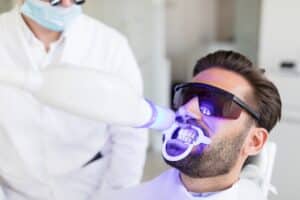Undergoing dental implant surgery is a significant step towards restoring your smile and oral health. Whether you’re replacing a single tooth or multiple teeth, proper post-operative care is essential for a smooth recovery process. One crucial aspect of recovery is your diet. Choosing the right foods can promote healing, minimize discomfort, and support the success of your dental implants. In this informative blog post, we’ll explore what to eat after dental implant surgery to ensure a comfortable and successful recovery.
The Importance of Diet After Dental Implant Surgery
After dental implant surgery, your mouth will be in a delicate state as it heals from the procedure. It’s crucial to follow your dentist or oral surgeon’s recommendations regarding diet to promote optimal healing and reduce the risk of complications. A diet consisting of soft, nutritious foods can help minimize discomfort, prevent damage to the surgical site, and provide essential nutrients to support tissue regeneration.
Recommended Foods After Dental Implant Surgery
1. Soft Foods
Opt for soft, easy-to-chew foods that require minimal effort to consume. This includes:
- Yogurt
- Applesauce
- Smoothies (without seeds or chunks)
- Mashed potatoes
- Soups (without chunks or sharp ingredients)
2. Protein-Rich Foods
Protein is essential for tissue repair and healing. Incorporate protein-rich foods into your diet, such as:
- Soft-cooked eggs
- Cottage cheese
- Protein shakes or smoothies (made with protein powder)
- Flaked fish or seafood
- Tofu or soft-cooked beans
3. Healthy Fats
Healthy fats are essential for a healthy body and provide essential nutrients. Include foods rich in healthy fats, such as:
- Avocado (mashed or blended)
- Nut butter (such as peanut butter or almond butter)
- Olive oil (used in cooking or as a dressing)
4. Nutrient-Dense Foods
Choose foods that are rich in vitamins and minerals to support your body’s healing process. Consider incorporating:
- Cooked vegetables (such as carrots, squash, or spinach)
- Fruit smoothies with added greens (such as spinach or kale)
- Oatmeal or porridge (cooked to a soft consistency)
- Low-sugar fruit (such as bananas or berries)
5. Hydrating Foods and Beverages
Hydration is essential for healing and overall health. Consume hydrating foods and beverages, including:
- Water (room temperature or lukewarm)
- Herbal teas (non-caffeinated and non-acidic)
- Broths or clear soups
- Jell-O or gelatin desserts
Foods to Avoid After Implant
In addition to knowing what to eat, it’s essential to be aware of foods to avoid during the initial stages of recovery after dental implant surgery. Avoid hard, crunchy, sticky, or spicy foods that can irritate the surgical site, dislodge the implants, or impede healing. This includes:
- Hard candies or nuts
- Crunchy fruits and vegetables (such as raw carrots or apples)
- Chewy candies or gum
- Spicy foods
- Tough meats or jerky
Tips for Eating After Dental Implant Surgery
1. Chew Carefully
Take small bites and chew slowly to avoid putting excessive pressure on the surgical site. Use your teeth away from the implant area to minimize discomfort and promote healing.
2. Maintain Good Oral Hygiene
Follow your dentist’s instructions for oral hygiene, including gentle brushing and rinsing with a saline solution or prescribed mouthwash. Keeping the surgical area clean and free from debris is essential for preventing infection.
3. Stay Hydrated
Drink plenty of fluids throughout the day to stay hydrated and support healing. Aim for non-caffeinated beverages and avoid using straws, as the sucking motion can potentially dislodge blood clots and interfere with healing.
4. Follow Your Dentist’s Recommendations
Every patient’s recovery process may vary slightly, so it’s essential to follow your dentist or oral surgeon’s specific instructions regarding diet, oral hygiene, and post-operative care. They will provide personalized guidance based on your individual needs and the specifics of your surgery.
Good nutrition is crucial for recovering from dental implant surgery. Selecting appropriate foods can reduce discomfort, aid tissue healing, and boost the overall success of your implants. Opt for soft, nutrient-dense foods and steer clear of harmful options to facilitate a more comfortable recovery. Seek advice from your dentist or oral surgeon for any diet or recovery-related queries. With proper care, you can look forward to a healthy, functional smile in the long term.





